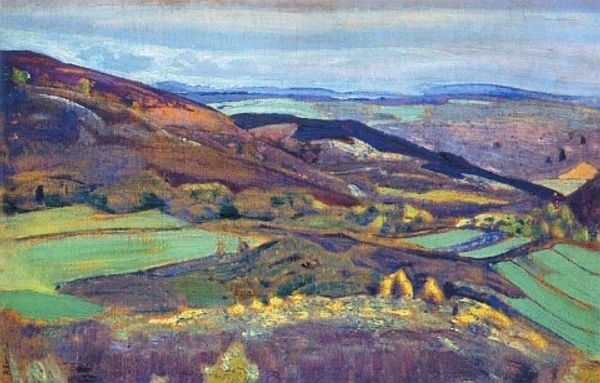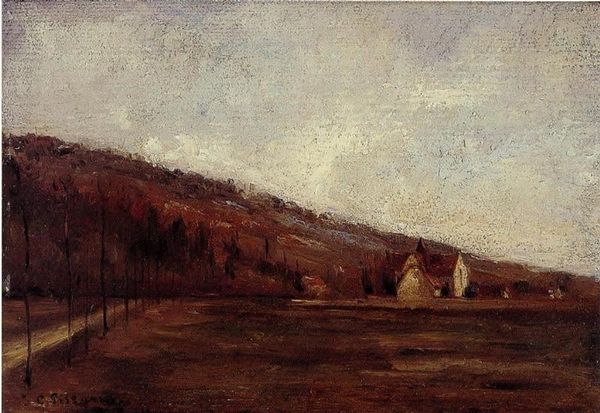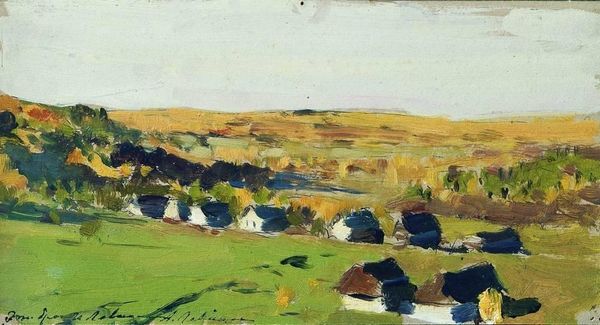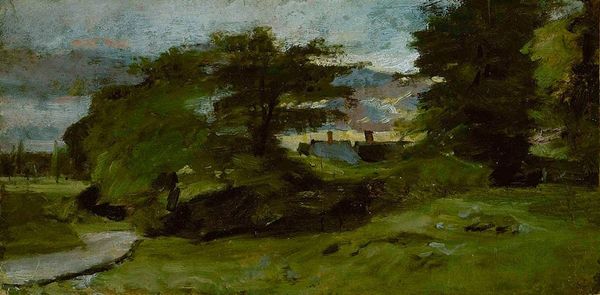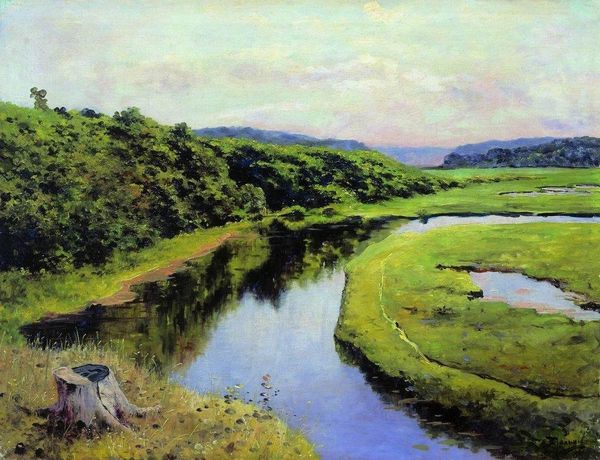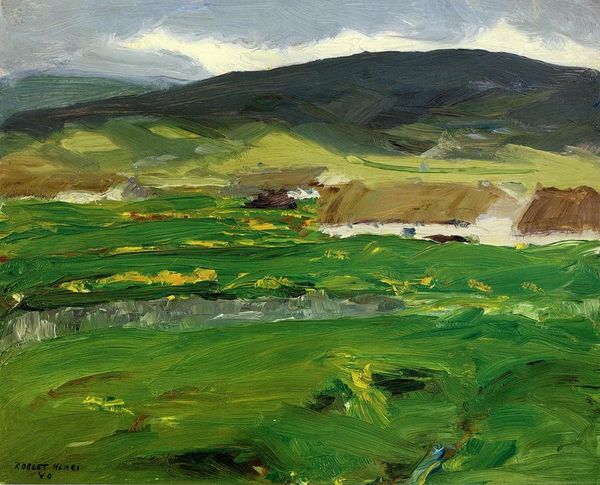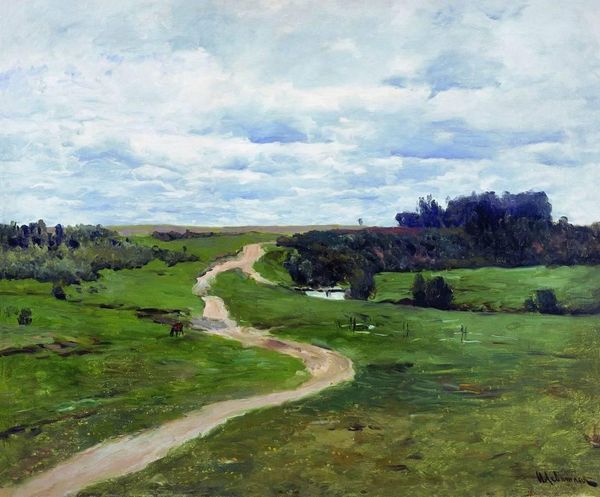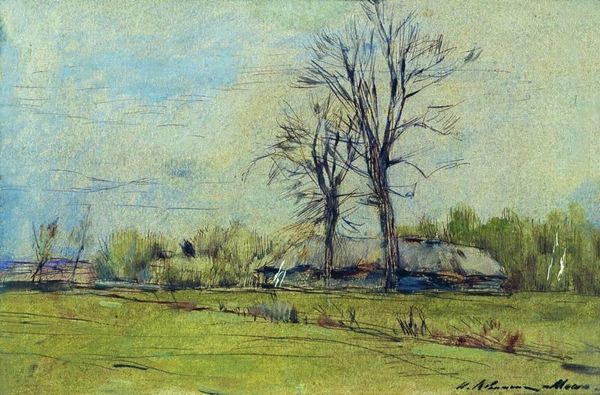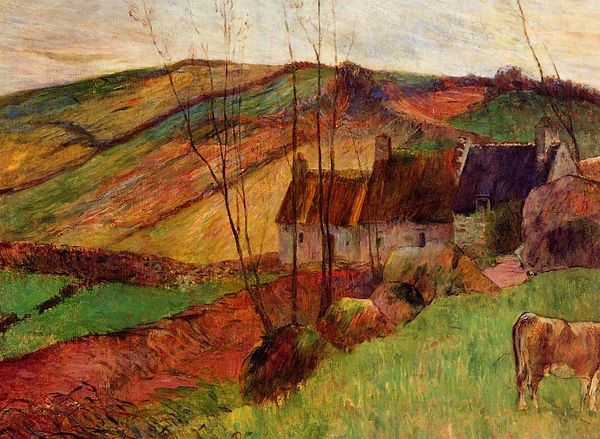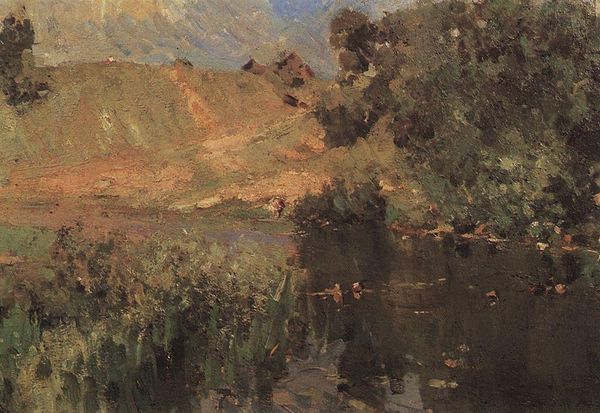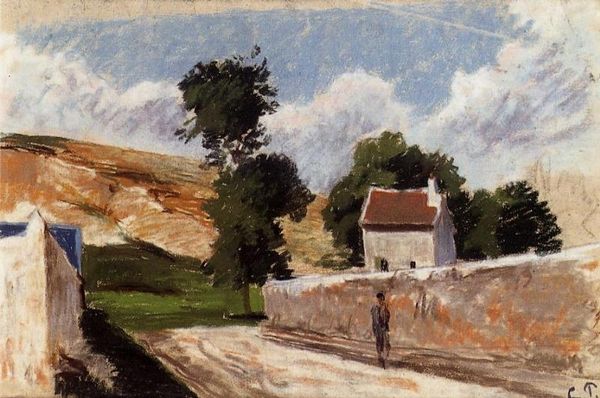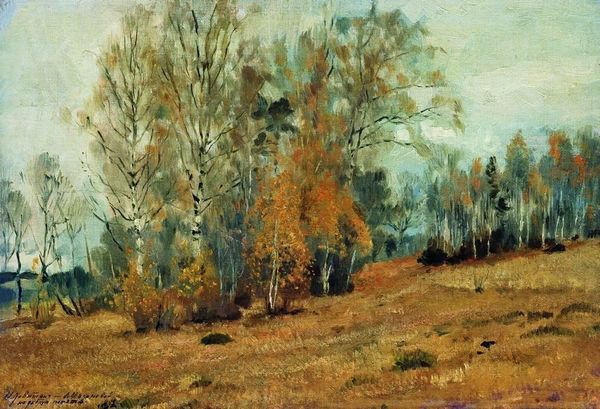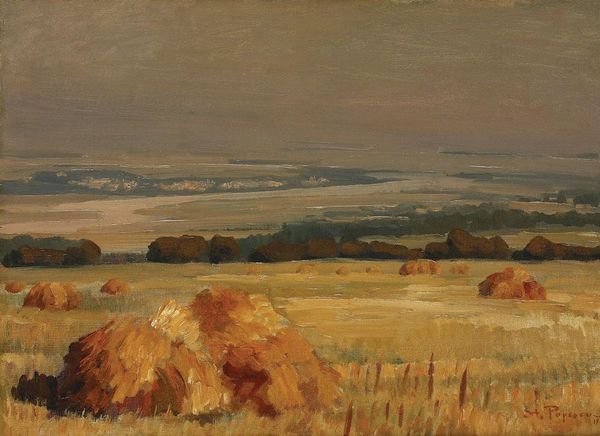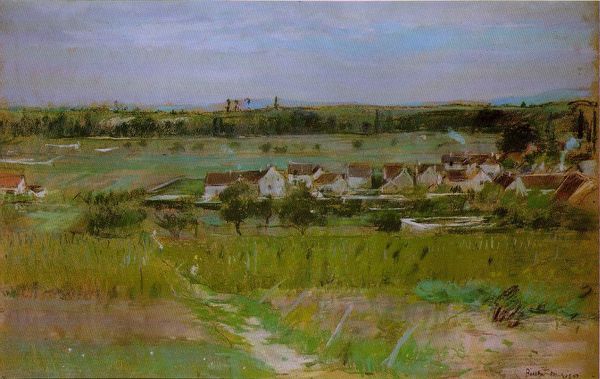
Copyright: Public domain
Editor: Here we have Isaac Levitan's "Village Khotkovo" from 1895, rendered in oil on canvas. There's a sense of quiet solitude that I get from it; the colors are muted, and the landscape seems untouched, almost melancholic. How do you interpret this work? Curator: It strikes me as a visual record of a changing rural landscape. Levitan, working during a period of rapid industrialization in Russia, presents us with Khotkovo, a village seemingly resisting those changes, at least on the surface. Consider the late 19th century: Russia was grappling with serf emancipation, burgeoning revolutionary movements, and the push-pull between agrarian tradition and modernity. Editor: So you're seeing the painting as more than just a landscape? Curator: Precisely. Look at the way the village is nestled into the landscape, almost hidden. It suggests a pre-industrial, communal way of life. But notice also the subtle signs of human presence, perhaps a path or the suggestion of cultivated land. What do these elements imply to you about Levitan's perspective on this period? Editor: Perhaps he is showing both the beauty and the vulnerability of the rural way of life? Was he maybe advocating for a slower, more nature-based approach? Curator: It's possible. His paintings were created around the same time as many different art movements in Russia such as the "peredvizhniki", and his artistic approach could reflect the contemporary values present in these art circles. Also remember, that Levitan himself experienced antisemitism. Perhaps, this landscape also carries the weight of exclusion and displacement that shaped his life and artistic vision. Editor: That context adds a whole other layer to my understanding! I saw serenity, but now I also recognize this work to hold complexities. Curator: Exactly. It’s about seeing the canvas as a site of intersectional narratives. Levitan offers not just a landscape but a complex statement on identity, society, and history. Editor: It gives me a lot to consider regarding art and social context. Thanks!
Comments
No comments
Be the first to comment and join the conversation on the ultimate creative platform.
